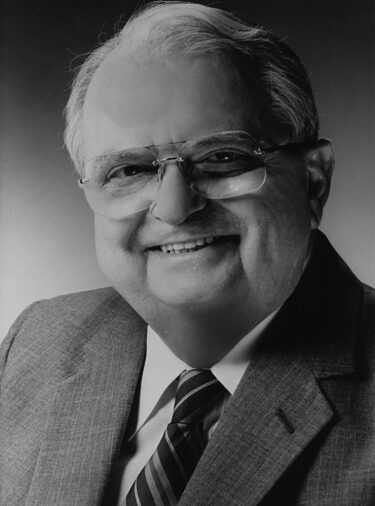Joseph M. Katz*
Class of 1981
- Chairman of the Board Papercraft Corporation

Be honest, be smart, and be ambitious.
Joe Katz was born near the Ukrainian city of Odessa in 1913. He was brought to America as an infant to escape the Czar's persecution of Jews. His parents had an uncle in Pittsburgh, where the family settled.
At an early age, Katz learned to set type while working as a volunteer in the printing department of a nearby school. He later set up a print shop in the family garage. In addition to his bimonthly magazine, Boys Ideal, he was assisted by his brothers in designing and printing handbills, invitations, and greeting cards. He saved enough money to supplement a partial scholarship to attend the University of Pittsburgh, where he majored in journalism.
Even in college, Katz continued to work at his print shop six to eight hours a day. In his junior year, he interned at the Pittsburgh Press. He was also managing editor of the Pitt Panther. During his senior year and at the height of the Great Depression, Katz lost interest in pursuing journalism when he realized the newspaper's truck drivers made more money than its reporters. He dropped out of school and moved his print shop from the family garage to an office building's loft in downtown Pittsburgh.
Following the destructive Pittsburgh flood of 1936, Katz published a souvenir booklet of the event. He sold out his 100,000 copies in four days. It was the most money he had ever earned. During World War II, he devised a rigid cardboard box containing writing paper, envelopes, and a pencil. The "Rite-Kit" became a bestseller nationwide and led to the founding of Papercraft Corporation, a diversified consumer products company that Katz headed for 37 years. After he sold the company, he organized Cavendish Holdings.
Katz's advice to young people was "Target what you would like to do with your life, and then dedicate yourself to unending hard work, education, creativity, and a burning ambition." Katz is known for his $10 million donation to the University of Pittsburgh, the school's largest personal gift in its 200-year history. Its graduate school of business is named for him.
